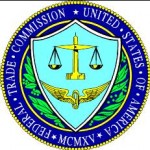Apr 22, 2010
I delivered a presentation today to the Kentucky Bar Association's Annual Corporate Counsel Conference titled Strategic IP Management: Shifting the Practice from Ex Post to Ex Ante. The conference was well attended by numerous In-House counsel from businesses across the state, small and large. Although it was an unconventional topic for an In-House Counsel CLE seminar, the presentation was well received and elicited a number of comments and questions afterward.
The outline materials for the presentation can be found HERE. Read More
Mar 31, 2010
I've spoken a lot on IP Prospective about preparing for intellectual property issues before they arise, and the reallocation of business client demands with regard to intangible assets. This week, an article that I authored on the subject was published in The Federal Lawyer, the Federal Bar Association's magazine. You can read the article HERE. Read More
Feb 12, 2010
In 2001, I saw Lebron James play in high school, and I remember telling myself, "that is the next Michael Jordan." Of course, I meant this from a basketball standpoint, but you can't refer to Michael Jordan without refering to his brand. MJ's brand is one of the most prolific in sports, and its longevity continues to impress. It turned out that Lebron lived up to my basketball potential billing. The brand of Lebron James has not disappointed either. He recently partnered with McDonald's, ... Read More
Jan 21, 2010
As a lawyer, it is generally not my job to come up with a price to be paid for a license to use a client's trademark. Sure, I might be given some ballpark figures by the client and set out to negotiate based on these figures, but I don't come up with these ballpark figures. I could if it was asked of me, but it is usually left to the client to figure out what it thinks its brand is worth for the ... Read More
Dec 31, 2009
I'd like to first thank all of the faithful IP Prospective readers over the last 12 months. IP Prospective will celebrate its first birthday next month!
2009 has been quite a year - for good and for bad. The financial market was consumed by a somber mood for most of the year, with just enough shining moments near the end of the year to lead U.S. consumers and investors into 2010 with an optimistic vibe. The intellectual property market did what most expected ... Read More
Dec 30, 2009
Chicago-Kent Law School, a member institution of the Illinois Institute of Technology (IIT), will offer the first multidisciplinary Masters program in Intellectual Property Management and Markets in the United States. The IAM blog first broke the news to me, as Joff Wild wrote last week that Ron Laurie, long time advocate of and expert on the CIPO movement, apprised him of the new offering. I had caught wind of such an interdisciplinary program in the works at an institution in the UC system ... Read More
Dec 18, 2009
In October the FTC published in the Federal Register new guidelines for the use of testimonials and endorsements in advertising. These guidelines were revised, and on December 1 the FTC adopted them. The guidelines have sweeping implications on internet advertising, including blogs, where testimonials have become a cheap and prominent method of advertising. Among the new guidelines that advertisers and endorsers must follow include the following:
Endorser testimonials must be honest and based on experience, opinion, or belief.
Endorsements may not be presented out ... Read More
Nov 4, 2009
As a blogger myself, unknown legal risks involved in providing content on the internet are always a concern. The growth in internet marketing, social networking, and other uses of the internet for business and collaboration has provoked an new need for legal protection from unwanted or unwise uses of these mediums. For instance, a blogger may control his or her own blog content, but what about the unsolicited comments? Can harrassment, derogatory language, or other unwanted uses of the comments section subject ... Read More
Sep 23, 2009
This post will be a break from the usual report or opinion regarding the IP market. I have encountered a rarely used but potentially case-changing doctrine in trademark law with a lot of bite - should it ever be adopted by the U.S. Supreme Court, or codified. I thought the issue could use some exposure. This piece will read a little bit more like a law review article (I apologize), but bear with me - this is important and interesting stuff!
Fair ... Read More
Jul 2, 2009
Recently I had a conversation with two other attorneys that reinvigorated an interest in this topic: Whether the government could take intellectual property whenever it deemed appropriate, use it for a public purpose, and pay the previous owner just compensation. In other words, could IP become subject to the government's eminent domain powers (or limitation on its powers, however you decide to view the 5th Amendment), similar to real and other personal property? I had spent a long time mulling over this ... Read More









 Ian McClure is a former corporate & securities and intellectual property law attorney with
Ian McClure is a former corporate & securities and intellectual property law attorney with  Trevor M. Blum is a former Associate in the Chicago-based, valuation practice group of Ocean Tomo, LLC., an intellectual property (IP) consultancy. Additionally, he provided instrumental research support to Intellectual Property Exchange International, Inc., an IP exchange start-up. Trevor holds a B.S. from Indiana University and is currently an MBA candidate at the University of Cambridge, focusing on international business and finance. His interests also include entrepreneurship, economics, and informational visualization. He enjoys running and cycling in his free time. Trevor seeks to bring a transnational business perspective to the blog.
Trevor M. Blum is a former Associate in the Chicago-based, valuation practice group of Ocean Tomo, LLC., an intellectual property (IP) consultancy. Additionally, he provided instrumental research support to Intellectual Property Exchange International, Inc., an IP exchange start-up. Trevor holds a B.S. from Indiana University and is currently an MBA candidate at the University of Cambridge, focusing on international business and finance. His interests also include entrepreneurship, economics, and informational visualization. He enjoys running and cycling in his free time. Trevor seeks to bring a transnational business perspective to the blog. 